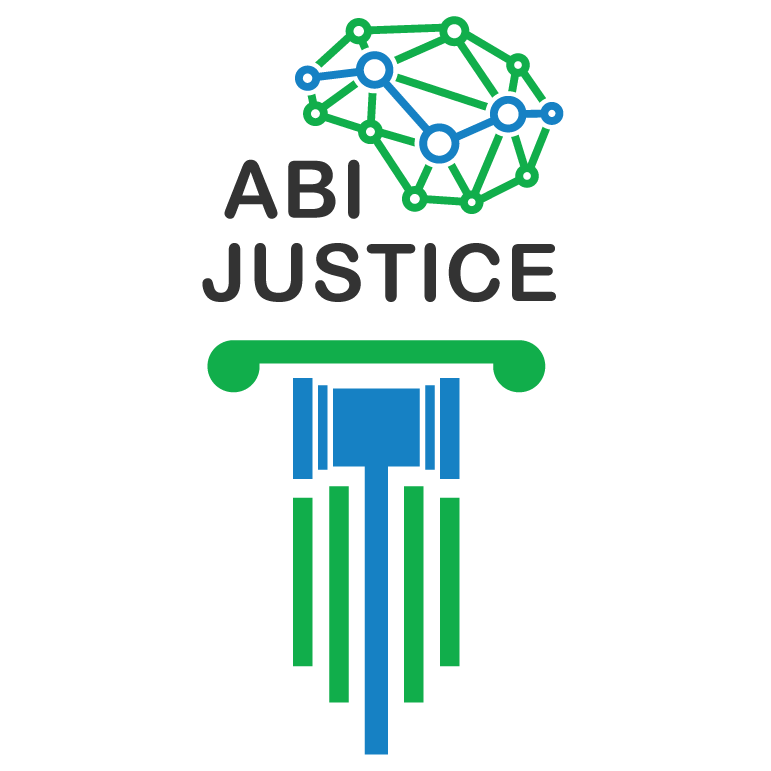The following are some printable tools and helpful checklists that can help remain organized throughout the criminal hearing process.
- Brain Injury Identification Card
- Appointment Card
- Tech Tools & Tips
- What Your Lawyer Should Know About You
- Common Challenges and Strategies - Specific to You
- For Your Lawyer, 'How to Hold An Accessible Meeting'
- Questions You Should Ask Your Lawyer
- Support and Soothing Tools
- Court Day Prep & Strategies Checklist
- Get Organized for Court - Checklist
Tech Tips & Tools
What Your Lawyer Should Know About You
– fill-able, savable and email-able form –
How to Hold an Accessible Meeting
You can assist yourself by sharing this information with your lawyer. At times, helping yourself requires more communication and breaking down any potential boundaries ahead of time.
Here is a printable document on How to Hold An Accessible Meeting.
You can share by either:
- coping the link and emailing it to your lawyer ahead of time, prior to meeting in person or over a virtual meeting
- showing this link in person when meeting with your lawyer
- or printing this image and bringing it with you to your meeting.
For further tips, tools and resources that will help your lawyer assist you more effectively, share this site built specifically for lawyers who are assisting those with brain injury navigating the criminal justice system: https://www.abijustice.org/legal-professionals/
Questions You Should Ask Your Lawyer
Click here to access an online version of these questions for your lawyer (save-able, printable and can be emailed to yourself and/or lawyer)
- Can you explain the charges against me?
- What are the consequences that I am facing?
- What documents do I need to support my case?
- Do I need witnesses? Do you need their contact information?
- Do I qualify for a diversion program, such as the Mental Health Diversion Program?
- Do you need access to my medical file and/or support agencies?
- Do I need to give you permission to speak to my medical professionals or social service providers?
- What about character witnesses?
- What are the steps throughout the process?
- How much will it cost to handle my case?
- Is there anything I can do to keep the costs lower?
- What are my payment options?
- What is the best way for me to keep in touch with you?
- How will you get in touch with me (remember to list your preferred methods – for example, ask that items not be mailed to you, if you forget to collect or open your mail).
- What is a list of items or documents that I need?
Support and Soothe Tools
These dollar store items can help with stress in situations which may cause you anxiety
– Have these items nearby to help reduce anxiety and improve focus –
Breath mint & Hand lotion
Breath mints can be grounding tools, once you put it in your mouth try to focus on the taste and coolness.
This also works with hand lotion – as you put it on focus on how it feels on your skin. This works with both scented and unscented cream.
Stress Balls
Stress balls can help alleviate nervous energy. Try rolling the ball across your leg or arm, or squish it between your hands.
Try a variety of squish balls, such as balls that are heavier in weight, different textures, and ones that make noise to see what works best for you.
Coil bracelets and Rubber Bands!
If you are distracted easily try wearing elastic bands or coil bracelets on your wrists. The snapping of the rubber bands can help decrease unwanted thoughts, alleviate anxiety and help you focus.
Cold Water & Ice Pack
If you become overwhelmed, overheated, or if you feel dizzy, light headed, irritated, or anxious, try an ice pack or drink a cold glass of water. The reason for the cold water and/or the cold ice pack is that the temperature change can bring down your emotional stress level.
Self Soothe Kit
In this video, Alexander explains how to create your own kit of self soothing tools.






